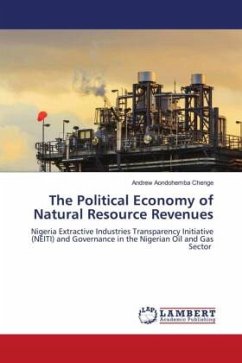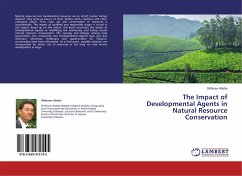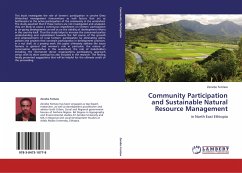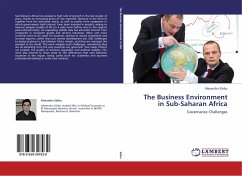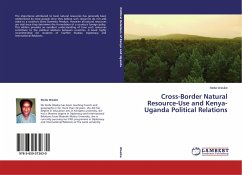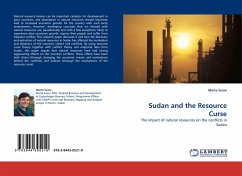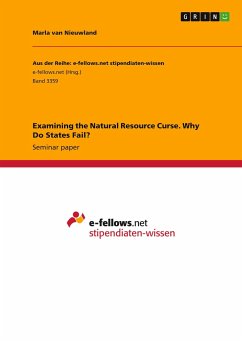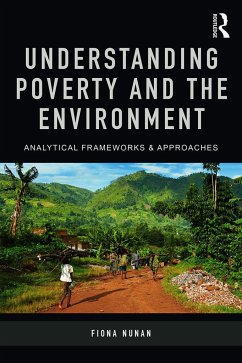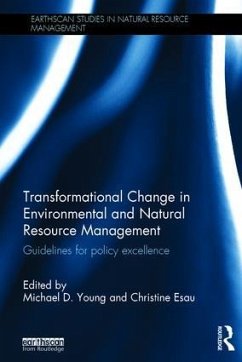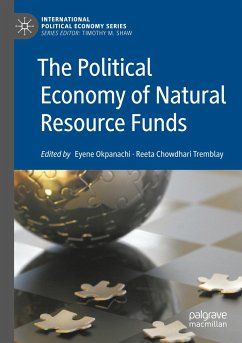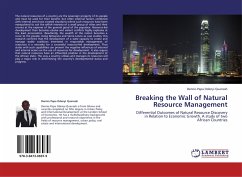
Breaking the Wall of Natural Resource Management
Differential Outcomes of Natural Resource Discovery in Relation to Economic Growth. A study of two African Countries
Versandkostenfrei!
Versandfertig in 6-10 Tagen
32,99 €
inkl. MwSt.

PAYBACK Punkte
16 °P sammeln!
The natural resources of a country are the sovereign property of its people and must be used for their benefit, but often external factors combined with internal ones have created situations where such resources have been manipulated to suit the selfish interests of a small group of elites and their cronies at the expense of the general good of the populace. Resource-led development then becomes elusive and violent conflicts highly explosive at the least provocation. Resultantly, the wealth of the nation becomes a curse to the people. Using Botswana and Sierra Leone as case studies, this resea...
The natural resources of a country are the sovereign property of its people and must be used for their benefit, but often external factors combined with internal ones have created situations where such resources have been manipulated to suit the selfish interests of a small group of elites and their cronies at the expense of the general good of the populace. Resource-led development then becomes elusive and violent conflicts highly explosive at the least provocation. Resultantly, the wealth of the nation becomes a curse to the people. Using Botswana and Sierra Leone as case studies, this research confirms that the development of a state capacity to create and manage stable coalitions interested in responsible management of resources is a necessity for a successful resource-led development. Thus states with such capabilities can prevent the negative influences of external and internal actors on the use of resources for development. It also argues that natural resources have an influential position in the development of the African state. The way a country utilises and manages its resources will play a major role in determining the country s developmental status and progress.



